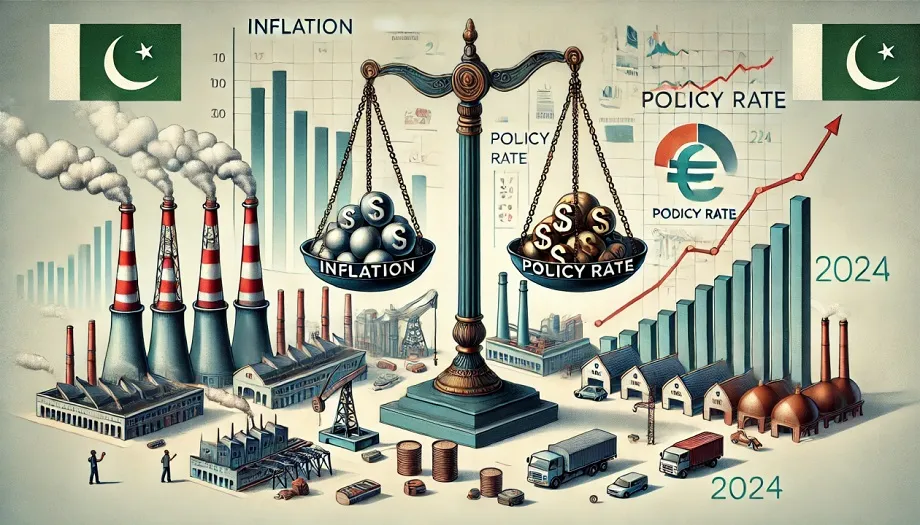KARACHI: Pakistan has the potential to rise among the top five economies in Asia by embracing innovation and transformative change, this has been discussed during recent dialogues in Karachi among the top business and policy makers of the nation.
The business leaders from Pakistan Business Council (PBC) during such an interaction highlighted the need to alleviate the tax burden on the documented sector and urged the government to create an environment more conducive to domestic and foreign investment.
As the dialogue between government and industry leaders continues, the broader message remains clear: for Pakistan to reach its economic potential, it must adopt a sustained, inclusive, and innovation-driven approach, with strong collaboration between the public and private sectors.
An innovative approach would assist exporters in obtaining international certifications, adhering to governance and regulatory standards, accessing digital customs training, and overcoming non-tariff barriers in key export markets including the EU, GCC, and ASEAN regions.
Federal Minister for Planning and Development Ahsan Iqbal during his visit to the Karachi Chamber of Commerce and Industry (KCCI), Pakistan Business Council (PBC) apart from meeting other business leaders and discussed these approaches at length.
Planning Division
The minister underscored the importance of long-term planning, policy consistency, and the capacity to adapt in order to effectively compete with regional economies like India.
“We must focus on sustainability and continuity in our policies if we wish to emulate the economic success seen in countries like India, Bangladesh, Indonesia, Turkiye, Japan, and South Korea,” he said.
Ahsan Iqbal emphasized four pillars essential for economic advancement: peace, stability, continuity of reforms, and good governance.
He noted that these foundational principles have propelled other nations forward, while Pakistan’s inconsistent application of them has held the country back.
“The lack of sustained implementation has cost us years of growth. It’s time to commit to these principles as a national priority,” he urged.
He highlighted the importance of equipping local businesses with the skills and knowledge needed to keep pace with global trade trends.
“If we fail to enhance the capabilities of our business community, Pakistani products and services will struggle to remain competitive on the global stage,” he warned.
To support this goal, the minister proposed the creation of a Karachi Export Compliance and Innovation Cell under the KCCI umbrella.
Innovative Approach
This initiative would assist exporters in obtaining international certifications, adhering to governance and regulatory standards, accessing digital customs training, and overcoming non-tariff barriers in key export markets including the EU, GCC, and ASEAN regions.
Read More: Pakistan GDP at 1.73% in Q2 of FY 2024-25
He cautioned against short-term economic strategies that prioritize rapid growth through increased imports, which ultimately drain foreign exchange reserves and worsen fiscal deficits.
“In my view, the real VIP is the entrepreneur or business that brings in foreign exchange through exports,” he remarked.
Calling for a cultural shift toward an export-driven economy, he insisted that all sectors must pivot from serving primarily the domestic market to focusing on global competitiveness.
“Without KCCI as a strategic partner, the vision of ‘Uraan Pakistan’ cannot take flight,” he said, referencing the government’s flagship economic uplift programme.
The minister also proposed the establishment of a Green Karachi Business Alliance, aimed at integrating sustainable practices in the business community.
He urged industries to invest in energy audits, carbon reduction, wastewater recycling, and zero-waste solutions, noting that future export markets will demand compliance with environmental and social standards.
Focus on Karachi’s Infrastructure
However, Businessmen Group Chairman Zubair Motiwala expressed skepticism over the government’s implementation of the Uraan Pakistan initiative.
He voiced concerns that despite its ambitious vision, the programme has yet to be translated into meaningful action.
“Why is this plan not operational? Why is the industry not seeing its benefits? We need results, not just paperwork,” he asserted.
In a separate engagement with the Pakistan Business Council (PBC), Ahsan Iqbal reaffirmed the federal government’s commitment to improving infrastructure in Karachi, which he described as a linchpin for national economic growth and a vital component of Uraan Pakistan’s success.
Also Read: Macroeconomic Stability Restored, Says SBP Governor
He acknowledged the challenges businesses face and pledged to support reforms that enhance the competitiveness of the private sector and make it easier to do business.
The PBC, in response, called for the removal of bottlenecks, including the elimination of the super tax, and for a reduction in the cost of energy for formal sector industries.









